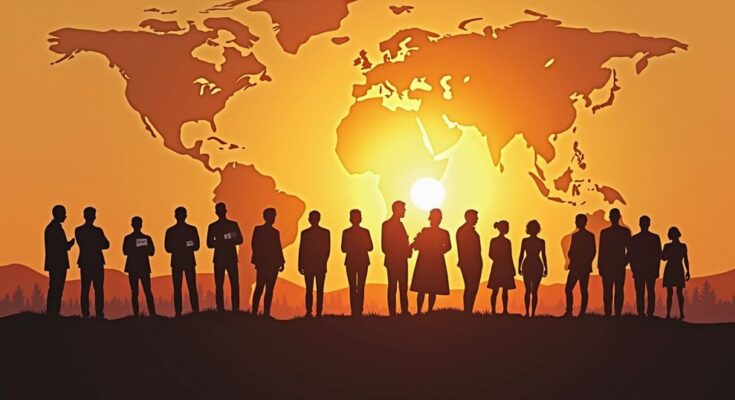This report highlights urgent humanitarian crises from the recent Israeli airstrikes in Lebanon, Sudan’s conflict escalation, calls for UN reform by Global South leaders, support for Haiti’s security forces, upcoming elections in Kashmir, and the Azerbaijani government’s appeal for a truce surrounding COP29. US Secretary of State Antony Blinken’s continuation of arms support to Israel amid ongoing humanitarian concerns in Gaza is also noted.
This week has witnessed severe violence and humanitarian crises across various regions. In Lebanon, over 700 individuals have perished due to Israeli airstrikes targeting Hezbollah, with significant civilian casualties and widespread displacement occurring in southern Lebanon. Israeli Prime Minister Benjamin Netanyahu has declined a US-backed ceasefire proposal, and military preparations suggest a ground invasion may follow. In Sudan, military forces are advancing in Khartoum against the Rapid Support Forces (RSF), leading to substantial civilian tolls and heightened concern in El Fasher, where the RSF has instigated assaults against government troops. The ongoing conflict has drawn the alarm of UN Secretary-General António Guterres, yet international complicity remains evident, particularly concerning UAE’s support for the RSF. Leaders from the Global South have made their voices heard during the UN General Assembly, demanding meaningful reforms to address systemic inequities such as climate change and the conflicts in Gaza. They assert that existing power structures echo the inequities of a century past, urging immediate action to rectify these challenges. Concurrently, momentum is building for a multinational security force in Haiti, with the US pledging an additional $160 million and Kenya announcing the deployment of more police to stabilize the situation amid increasing gang violence and humanitarian needs. Furthermore, elections are imminent in Indian-administered Kashmir, marking a pivotal moment since the revocation of its special status. The assembly elections will feature several candidates from various parties, challenging the ruling BJP’s authority. Meanwhile, Azerbaijan is proposing a temporary truce surrounding the upcoming COP29 climate summit, aiming to unite nations despite its recent controversial military actions. In Washington, US Secretary of State Antony Blinken persists in arming Israel despite critical reports suggesting Israel has obstructed humanitarian aid delivery to Gaza. This stance enables ongoing military support amidst a humanitarian catastrophe affecting millions in the region.
The global humanitarian landscape is increasingly fraught with crises, including prolonged armed conflicts, escalating violence, and urgent calls for international reform and support. The situation in Lebanon, marked by significant airstrikes and civilian displacement, exacerbates existing tensions between Israel and Hezbollah while drawing attention to the plight of Lebanese civilians caught in the crossfire. Sudan’s protracted conflict highlights the dire consequences faced by civilians amid battles between the national army and paramilitary factions. In this context, Global South leaders have expressed their frustrations at the United Nations, demanding structural reforms to address power imbalances that perpetuate inequalities on the world stage. The need for international cooperation extends to Haiti, where gang violence prompts international assistance and the deployment of peacekeeping forces. Kashmir’s upcoming elections will potentially reshape its political landscape following significant constitutional changes. Concurrently, Azerbaijan’s call for a COP29 truce illustrates the intersection of environmental and political challenges.
In summary, the week has unveiled critical humanitarian challenges and complex geopolitical dynamics, showcasing the urgent need for reform and support across various regions. The ongoing violence in Lebanon and Sudan, alongside increased international assistance efforts in Haiti, underscores the vital role of global cooperation in addressing humanitarian crises. The calls from Global South leaders for UN reform and the significant political developments in Kashmir further emphasize the interconnectedness of conflict, governance, and humanitarian needs in today’s world. Therefore, heightened awareness and action are essential to confront these pressing issues effectively.
Original Source: www.thenewhumanitarian.org




